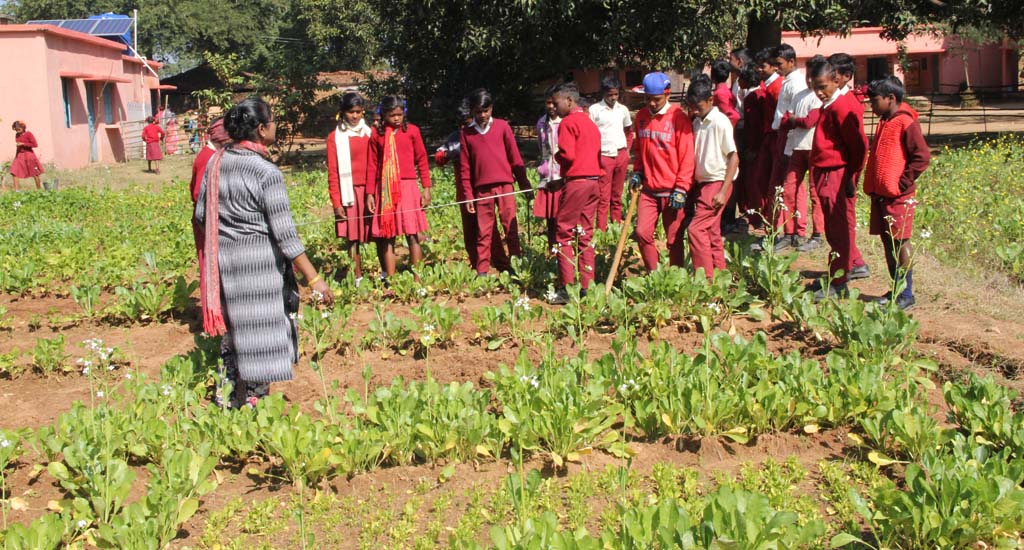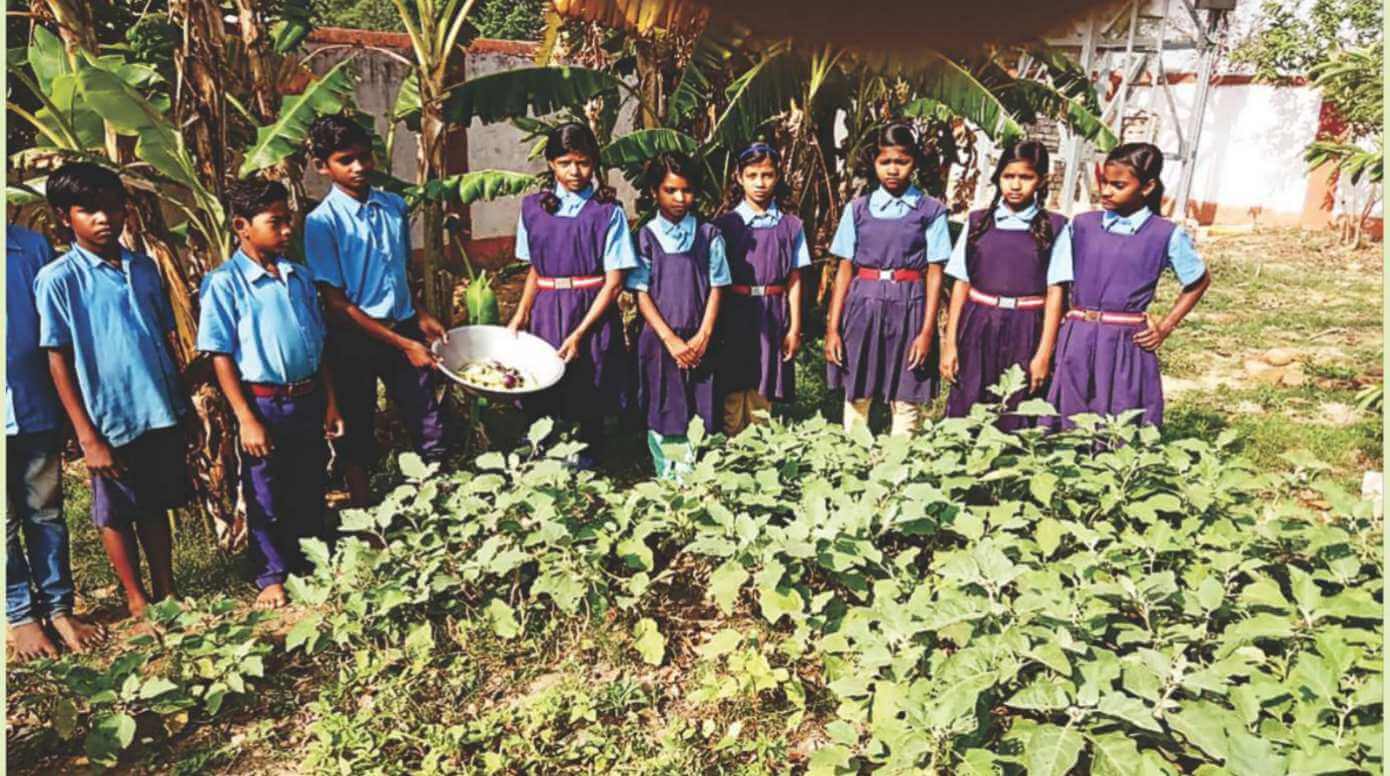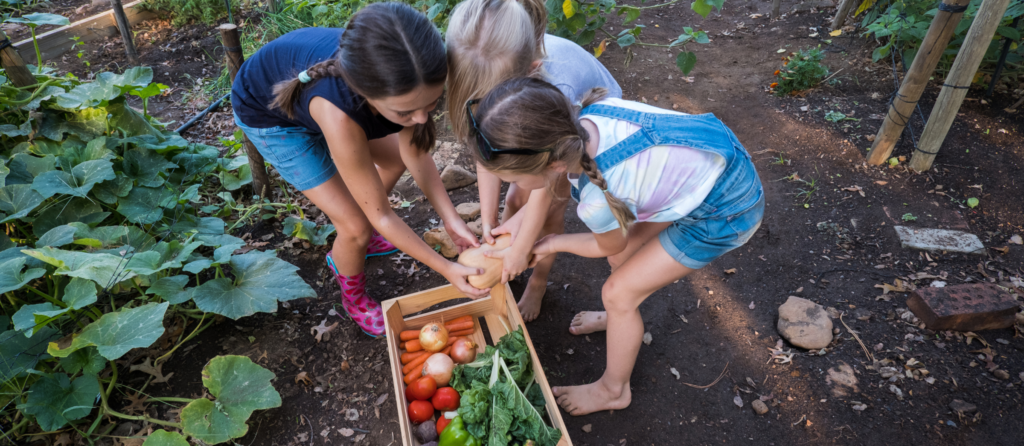In today’s evolving educational landscape, school garden nutrition is becoming more than just a trend—it’s a vital teaching tool that promotes healthier lifestyles, academic engagement, and environmental awareness. The fusion of gardening and nutrition education empowers students to grow their own food, understand its benefits, and develop healthy habits that last a lifetime.
At a verified campus, we believe that true learning happens not only within classrooms but also in the soil beneath our feet. That’s why our initiative integrates school garden nutrition into everyday learning, making education more holistic, hands-on, and impactful for every child.
What Is School Garden Nutrition?
School garden nutrition is the integration of gardening activities with nutritional education, where children actively grow fruits, vegetables, and herbs in school gardens. These gardens serve as living classrooms, allowing students to learn about plant life cycles, sustainable farming, seasonal crops, and, most importantly, how food choices impact their health.
Children don’t just read about healthy eating—they experience it. They plant, water, harvest, and cook with fresh produce. This real-world experience leads to a deeper understanding and appreciation of food, nutrition, and healthy eating habits.
Why Smart Kids Love School Garden Nutrition
-
Hands-On Learning Enhances Retention
When students actively engage with what they learn, retention rates increase dramatically. School garden nutrition turns abstract textbook lessons into concrete, real-life applications. They see how vegetables grow, taste their own harvest, and link it back to nutrition science. -
Encourages Healthy Eating Habits
Studies have shown that children who grow their own food are more likely to eat fruits and vegetables. Through school garden nutrition, students become enthusiastic about trying new vegetables they helped grow—spinach, tomatoes, radishes, and more. -
Boosts Emotional and Mental Wellbeing
Working in gardens has been linked with reduced stress and anxiety. When students dig their hands into the soil, they experience calmness, focus, and a break from digital overload. School garden nutrition fosters emotional intelligence and mindfulness. -
Promotes Teamwork and Responsibility
Whether it’s planting in teams or maintaining the garden together, students learn accountability and collaboration. Each child contributes to the garden’s success, which boosts confidence and teamwork. -
Real-Life STEM Education
The garden becomes a living laboratory. Students learn biology through plants, chemistry in soil composition, mathematics through measuring and tracking growth, and environmental science by practising sustainability. All of this is seamlessly woven into school garden nutrition programs.
Educational Impact of School Garden Nutrition
A verified campus doesn’t just look at academic scores—we focus on whole-child development. School garden nutrition nurtures critical thinking, observation skills, and curiosity. Children become little scientists, asking questions like:
-
Why do plants need sunlight?
-
What’s composting, and how does it help soil?
-
How does food impact our bodies?
Teachers integrate these questions into lesson plans across subjects—science, math, language arts, and social studies—offering interdisciplinary learning through a single tool: the school garden.
Moreover, the garden becomes a storytelling zone where children write journal entries about their planting journey or create art inspired by flowers and vegetables. These creative expressions add depth to their educational experience.
Nutrition Education with Every Seed
Nutrition is often taught abstractly, but school garden nutrition offers tangible learning. Kids discover which vegetables are rich in iron, which fruits provide Vitamin C, and how herbs like mint or basil support digestion.
They also understand portion sizes, food groups, and the role of a balanced diet—lessons crucial in an age of processed snacks and fast food. From planting to plate, school garden nutrition builds healthier food relationships.
Key Nutritional Concepts Taught in Gardens:
-
The importance of seasonal eating
-
How fiber improves digestion
-
Natural sugar vs. processed sugar
-
Role of water and hydration
-
Benefits of leafy greens and superfoods
Environmental Education Through Gardens
School garden nutrition is also a gateway to environmental education. Students learn about:
-
Composting and reducing food waste
-
The role of pollinators like bees and butterflies
-
Organic farming practices
-
The carbon footprint of food transportation
By understanding where their food comes from, students become conscious consumers and future environmental stewards. A verified campus equips them not only with academic skills but also with the mindset to care for the planet.
How Teachers and Parents Collaborate
School garden nutrition succeeds best when teachers and parents collaborate. Educators design lesson plans and maintain consistency in learning, while parents extend these lessons at home by involving children in grocery shopping or cooking.
Workshops, cooking demos, garden tours, and nutrition challenges create a vibrant ecosystem around the school garden. A verified campus often hosts parent-child gardening days, where the bond between home and school grows deeper—along with the vegetables.
Real Student Stories from the Garden
Aarav, a fifth-grader, never liked spinach. But after watching it grow from a seed and harvesting it with his classmates, he eagerly asked his mother to cook it at home.
Meher, a shy student, found confidence by leading her team in planting carrots. She now volunteers during every recess to check on their progress.
These stories highlight how school garden nutrition nurtures not only health but also identity, leadership, and joy.
Data That Proves It Works
Research from leading institutions supports what we’ve observed:
-
Schools with garden programs see higher fruit and vegetable intake among students.
-
Science and math scores improve due to practical, hands-on applications.
-
Attendance and behavioural issues decline in schools with garden-integrated curricula.
-
Children demonstrate increased empathy, patience, and resilience.
When it comes to well-rounded development, school garden nutrition is proving to be one of the most powerful, positive tools in a school’s arsenal.
How a Verified Campus Implements School Garden Nutrition
As a verified campus, our approach to school garden nutrition is structured, inclusive, and aligned with educational goals.
Key Features of Our Program:
-
Dedicated garden space maintained by staff and students
-
Integrated garden-based curriculum for classes 1–8
-
Regular health and nutrition check-ins by professionals
-
Seasonal planting schedules tied to the academic calendar
-
Parent engagement through workshops and gardening sessions
-
Digital tracking of plant growth and student contributions
We also ensure that the produce harvested is used in school meals or sold at student-run stalls, teaching entrepreneurial and life skills.
Challenges and How We Overcome Them
Like any educational innovation, school garden nutrition comes with its challenges—climate issues, pests, maintenance, and scheduling. However, at our verified campus, we overcome them by:
-
Involving the community and volunteers
-
Using shade netting and rainwater harvesting
-
Assigning student garden captains for responsibility
-
Using digital apps to track watering and harvests
These solutions not only keep the garden thriving but also teach resilience and problem-solving to our students. 
Conclusion: Nurturing Smart Kids, Naturally
As we aim to raise the next generation of leaders, thinkers, and global citizens, school garden nutrition becomes a vital bridge between health, education, and sustainability. It fosters curiosity, responsibility, empathy, and wellness.
A garden isn’t just a patch of soil—it’s a space where students bloom.
And it’s one of the many reasons why we are proudly recognised as the best school in Dehradun—because we cultivate not only minds but also hearts and habits.


